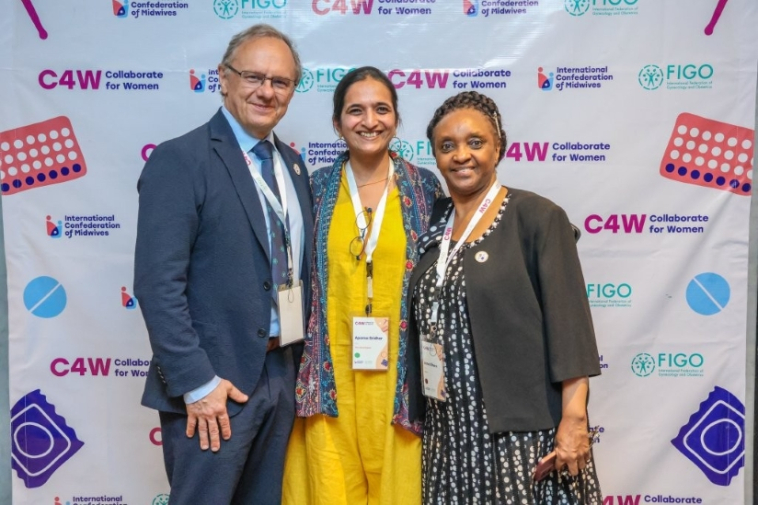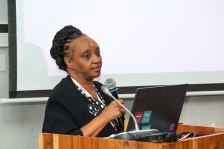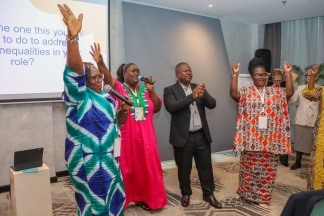Championing interprofessional collaboration in women’s healthcare

From 2-4 September, OBGYNs, midwives and representatives of government, civil society and women’s advocacy groups convened in Nairobi, Kenya, for the first high-level meeting of the Collaborate for Women: Abortion and Contraceptive Care Together (C4W ACCT) initiative between FIGO, ICM and WHO/HRP.
Days one and two of the meeting were global in scope, considering how questions of gender, social norms and interprofessional collaboration impact on women’s health. The sessions started with some keynote speeches, including a powerful address from our President, Prof. Anne Kihara, on the importance of a team-based approach to healthcare that keeps the woman at the centre.

Competitive and hierarchical leadership will never get us anywhere. It is time we adapt collaborative leadership, where we serve our professions and women.
Participants were then divided into groups to discuss opportunities and barriers to interprofessional collaboration. Driven by the brilliant gender facilitator Zaituni Nabateregga, the discussions were dynamic and challenging, with delegates raising questions about cultural norms, professional hierarchies and country-specific realities.

On the second day, we dived even deeper into the topic of interprofessional collaboration, hearing from our incoming Division Director of Sexual & Reproductive Health and Wellbeing, Dr Aparna Sridhar, who delivered an engaging pitch on using technology to improve consultation and referral and address the human cost of disconnected care.
Both days concluded with a shared understanding of the value and challenges of interprofessional collaboration and a commitment to strengthen partnership and turn dialogue into action.
A key output of these discussions will be the publication of two FIGO-ICM joint statements: one on comprehensive abortion care and the second on interprofessional collaboration, expected to be released in early 2026.
Day three of the event brought together national taskforces to share experiences and learnings from the project so far, as well as future plans for strengthening pre-service education in family planning (FP) and comprehensive abortion care (CAC).
National taskforces described how they successfully carried out needs assessments to evaluate the status of FP and CAC curricula in their country, future priorities for curriculum development and faculty strengthening and the importance of the WHO Family planning and comprehensive abortion care toolkit for the primary health care workforce to this work.

We also learned that there is no “one size fits all” approach to the project and the importance of recognising diverse legal and social environments, geographies and ways of working.
OBGYN and midwifery project leads reflected positively on working together – some for the first time in nearly a decade. They also considered how to integrate learnings from the first two days of workshops into their day-to-day practice and committed to further strengthening interprofessional collaboration, with suggestions such as signing a joint MOU and advocating to government with a unified voice.
Participants described feeling “energised”, “inspired” and “empowered” at the close of the meeting — and so did we. We’re excited to see the impact that our growing collaboration will have on advancing women’s healthcare and human rights.